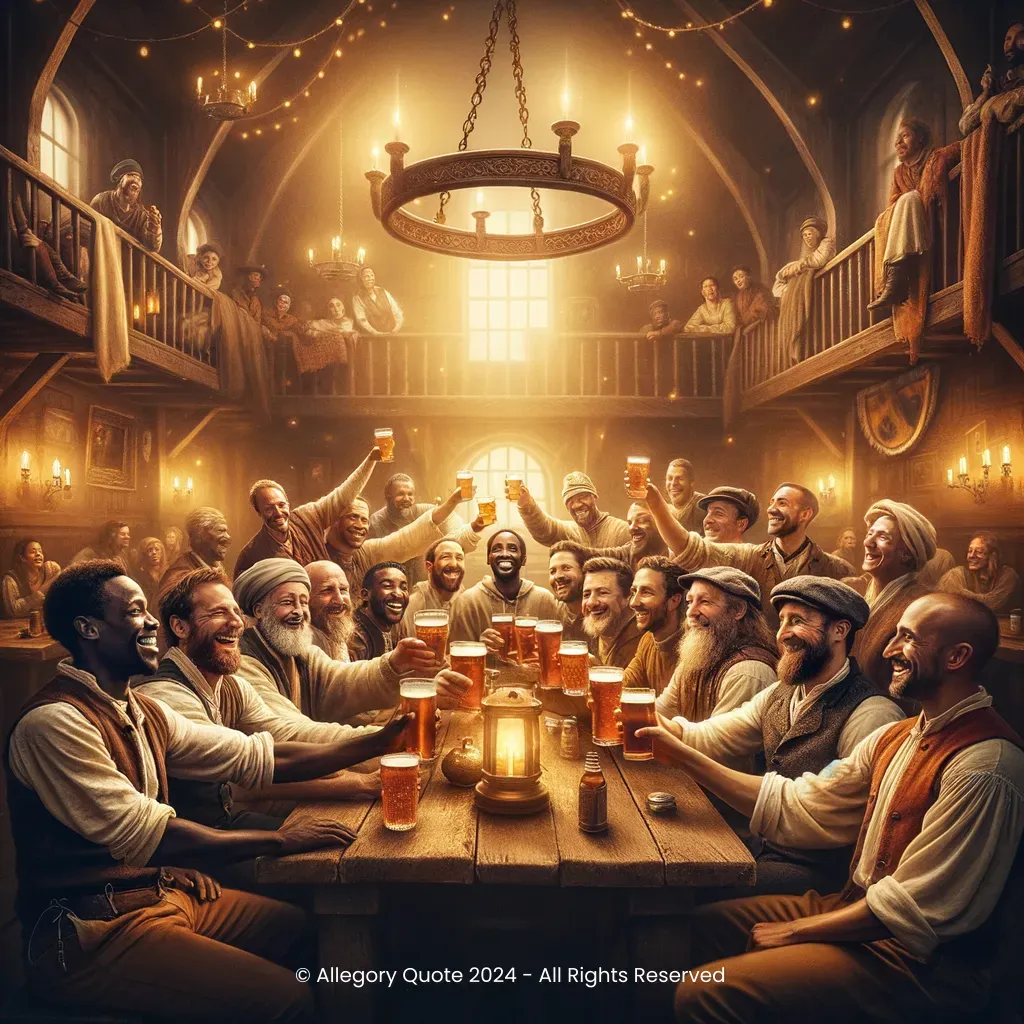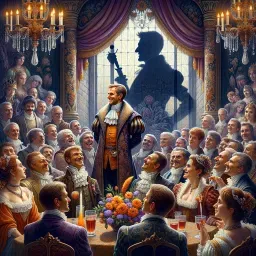”Come, gentlemen,
I hope we shall drink down all unkindness“

0
0
0
0
- Meaning
- This phrase is a call for reconciliation and goodwill, delivered with the hope that sharing a drink can mend fractured relationships. It suggests the idea that social gatherings and the act of drinking together can dissolve misunderstandings and foster friendship. The act of sharing a drink is symbolic of unity and the setting aside of differences.
- Allegory
- This image contains several key elements that align with the phrase: the warmly lit medieval tavern evokes a sense of traditional gathering places where social bonds were formed. The gentlemen raising their glasses emphasize the act of drinking together to dispel unkindness, and the cheerful atmosphere underscores the success of these actions in fostering camaraderie. The soft, golden light serves as a visual metaphor for warmth, unity, and peace, enhancing the sense of reconciliation and joyous fellowship.
- Applicability
- In personal life, this phrase encourages the practice of resolving conflicts and promoting harmony through social interactions. Whether at a dinner party, a holiday gathering, or any social event, the concept of coming together over a shared moment can help ease tensions and build bridges between individuals. It emphasizes the importance of finding common ground and fostering a peaceful atmosphere.
- Impact
- The impact of this phrase is reflective of Shakespeare's broader influence on language and culture. Shakespeare's works have been studied, performed, and revered for centuries. This phrase, like many of his others, conveys timeless human emotions and social dynamics that remain relevant. It has contributed to the idiomatic richness of the English language and is often used to underline the importance of reconciliation.
- Historical Context
- "The Merry Wives of Windsor" was first performed somewhere around 1600. This was a period marked by flourishing English Renaissance culture, under the reign of Queen Elizabeth I, and an era in which Shakespeare was writing many of his most famous works.
- Criticisms
- Criticisms and controversies related to this phrase generally revolve around interpretations of Shakespeare’s works. Some argue that romanticizing the act of drinking as a means to resolve conflict might not always be appropriate, especially in cultures or contexts where alcohol consumption can be problematic. Additionally, modern perspectives on conflict resolution might advocate for more direct and sober approaches.
- Variations
- Various cultures have interpretations and practices that involve sharing food or drink to settle disputes or reinforce bonds. For example, the concept of "breaking bread" together in many traditions symbolizes peace and reconciliation.
-

To weep is to make less the depth of grief.
-

know what were good to do, chapels had been churches, and poor men's cottages princes' palaces.
-

One touch of nature makes the whole world kin.
-

Divide et impera.
-

Things without all remedy should be without regard: what's done is done.
-

If to do were as easy as to.
-

There's daggers in men's smiles.
-

To do a great right do a little wrong.
-

If to do were as easy as to know what were good to do, chapels had been churches, and poor men's cottages princes' palaces.
-

I am a man more sinned against than sinning.
-

Get thee to a nunnery.
No Comments